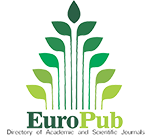In vitro and in vivo efficacy of Larrea divaricata extract for the management of Phytophthora palmivora in olive trees
DOI:
https://doi.org/10.48162/rev.39.112Palabras clave:
extractos vegetales, actividad antimicrobiana, compuestos bioactivos, alcaloides, enfermedades, rama seca, Olea europeaResumen
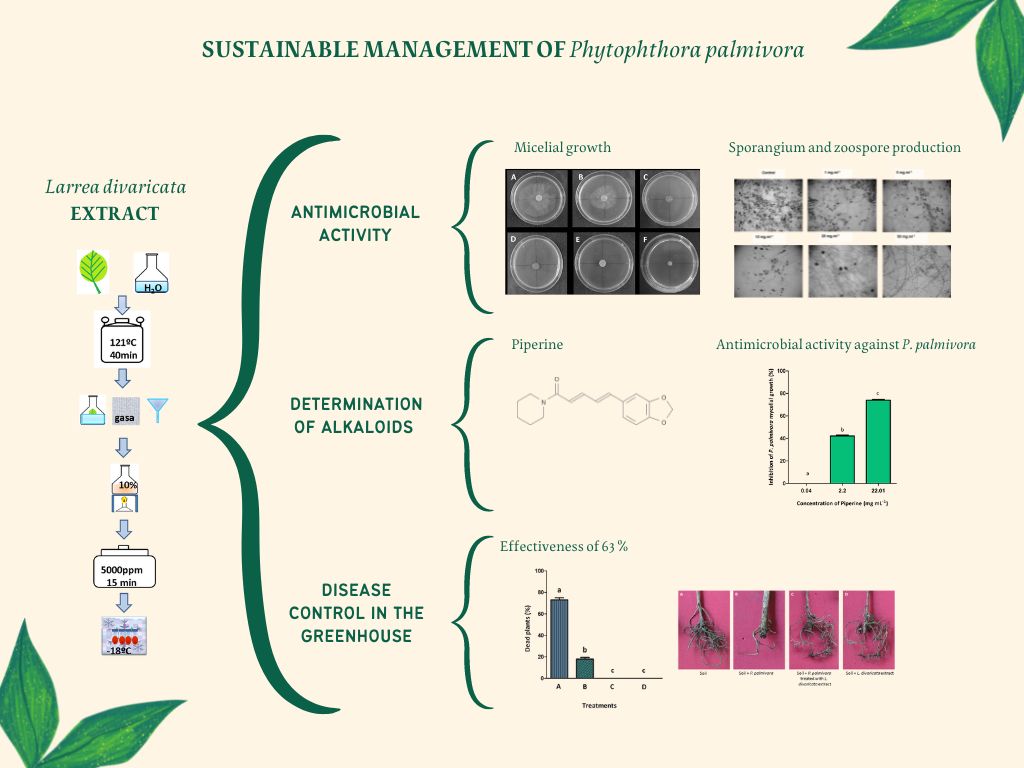
Phytophthora palmivora is a ubiquitous pathogen responsible for “dry branch” disease, causing significant economic losses in olive trees. Synthetic chemical fungicides are currently used for the control of P. palmivora. The general concern about the negative consequences of using synthetic products prioritizes the search for eco-friendly alternatives. In this context, plant extracts have emerged as an interesting and promising alternative for crop protection. This work studies the inhibitory activity of Larrea divaricata extract on P. palmivora mycelial growth, sporangium and zoospore production. The extract showed fungicidal activity against P. palmivora mycelial growth at concentrations over 150 mg mL-1. Specifically, the extract at 50 mg mL-1 completely suppressed the production of P. palmivora sporangia and zoospores. The alkaloid piperine in L. divaricata extract showed antimicrobial activity against P. palmivora mycelial growth. Extract effectiveness was also evaluated on olive trees in a greenhouse, showing 63% of disease reduction. These results support the use of L. divaricata extract as another environmentally friendly tool to be included in an integrated disease management program for dry branch disease caused by P. palmivora.
Highlights:
- L. divaricata extract showed an effective antimicrobial activity against P. palmivora.
- Piperine was identified in the divaricata extract by HPLC/MWD.
- The alkaloid piperine in divaricata extract showed antimicrobial activity on the mycelial growth of P. palmivora.
- L. divaricata extract could be included in an integrated management programme for dry branch disease caused by P. palmivora.
Descargas
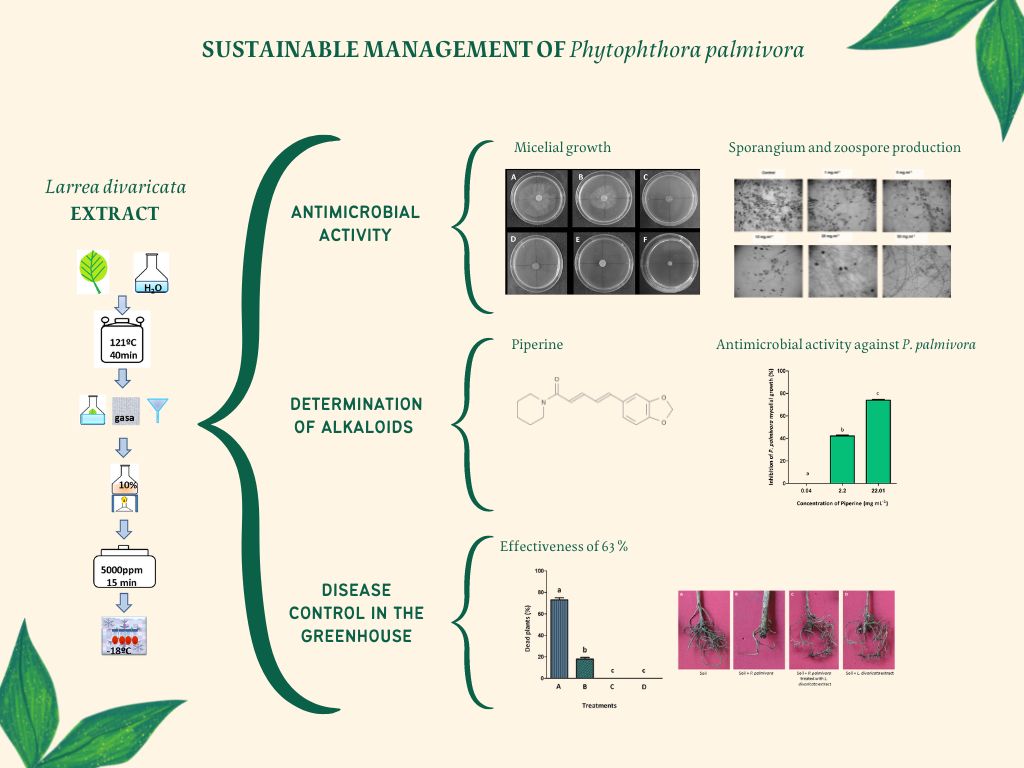
Descargas
Publicado
Cómo citar
Número
Sección
Licencia
Derechos de autor 2018 Revista de la Facultad de Ciencias Agrarias UNCuyo

Esta obra está bajo una licencia internacional Creative Commons Reconocimiento-NoComercial-CompartirIgual 3.0.
Aquellos autores/as que tengan publicaciones con esta revista, aceptan las Políticas Editoriales.

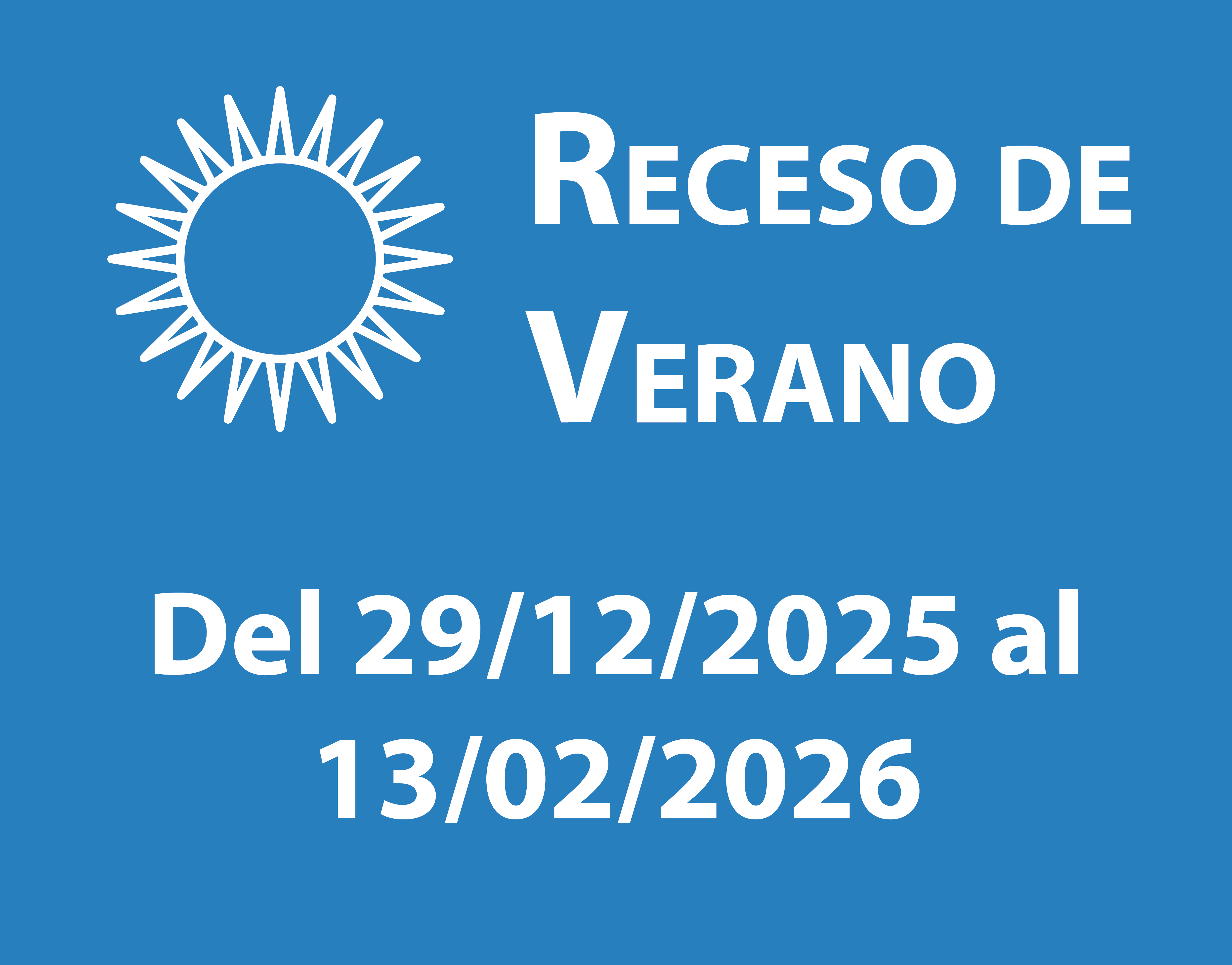

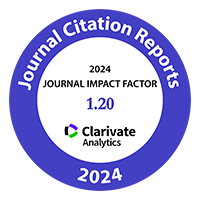




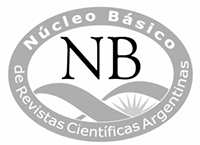


.jpg)
